
But one funny-looking vehicle appears to be gaining momentum.
Waymo, born 15 years ago as the "Google SelfDriving Car Project," now offers fully autonomous rideshare services in Phoenix-where its driverless vehicles also make Uber Eats deliveries-as well as in San Francisco and part of Los Angeles; 50,000 paid Waymo rides take place across the three cities each week, the company recently announced.
That paying passengers now routinely hop into empty Waymo vehicles, which gracefully move among the surrounding jumble of human-piloted cars, is a remarkable feat of engineering and a genuine pinch-me moment for anyone who has experienced it. And while Waymo has been at it longer than most, the fact that it has become the leader in the crowded race to commercialize self-driving cars was not a given.
Frederic Bruneteau, the founder of Ptolemus, a Brussels-based automation consultancy and market research firm, likens the competition in the self-driving car industry to the grueling Tour de France bicycle race: "Sometimes you see people catching up with you, and sometimes you're getting ahead and the number of people behind you are pretty scarce. That's what's happened with Waymo."
Aman Nalavade, Waymo's growth and expansion chief, says a go-slow approach has proved to be the right strategy for this race. "We scale responsibly, as it's bad business to overrun supply," Nalavade says. For technology as novel as fully autonomous vehicles, "it takes time to build up a meaningful service and gain a community's trust."
But even the most bullish believers in autonomous transportation acknowledge the tech still has a ways to go before it's reliable enough for wide-spread deployment on U.S. roads. And while Waymo has outlasted its rivals so far, new challenges on the regulatory and competitive front mean that it's closer to the next phase of the race than it is to the finish line.
FROM MOONSHOT TO REALITY
This story is from the June - July 2024 edition of Fortune US.
Start your 7-day Magzter GOLD free trial to access thousands of curated premium stories, and 9,000+ magazines and newspapers.
Already a subscriber ? Sign In
This story is from the June - July 2024 edition of Fortune US.
Start your 7-day Magzter GOLD free trial to access thousands of curated premium stories, and 9,000+ magazines and newspapers.
Already a subscriber? Sign In
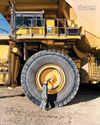
THE NEW GOLD RUSH
Gold prices have soared amid global uncertainty and a central-bank-driven buying spree. But this time, the gold mining industry looks very different.

A New Season for Giving
As the PGA TOUR kicks off its 2025 season alongside its sponsors in Hawai'i, the organization is continuing to make an impact in local communities.
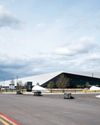
WELCOME TO ELONTOWN, USA
The small town of Bastrop, Texas (pop. 12,000), has become a home base for Elon Musk's business empire. What comes next is anyone's guess.
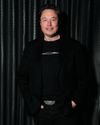
100 MOST POWERFUL PEOPLE
Our inaugural, authoritative ranking of the leaders whose innovation and impact have elevated them to the top of the business world.

ARE CEO SABBATICALS THE ULTIMATE POWER MOVE?
WHEN VENTURE capitalist Jeremy Liew and his wife were dating, they talked about how one day they would take a year to travel the world. \"That's how we'd know we'd made it,\" Liew says.
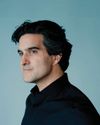
WHAT ARE THE BEST METRICS FOR MEASURING A STARTUP'S POTENTIAL?
IN HIS 2012 ESSAY \"Startup = Growth,\" Paul Graham talks about a 5% to 7% weekly growth rate as table stakes for startup success. If you're growing 10%, he says, you're doing \"exceptionally well.\"

TECH POLYMARKET'S ELECTION ACCURACY MADE SHAYNE COPLAN A STAR-BUT AN FBI RAID POINTS TO TROUBLE AHEAD
IN NOVEMBER, Shayne Coplan had a week he'll remember for the rest of his life: He got a phone call from the highest echelons at Mar-a-Lago. He went on TV for the first time. And his New York City apartment was raided by the FBI.
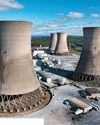
WHY BIG TECH IS THE NUCLEAR INDUSTRY'S NEW BEST FRIEND
OVER THE PAST several years, Big Tech firms like Google and Microsoft have trumpeted ambitious plans to go carbon-neutral, or even carbon-negative, by 2030. But then the generative-AI boom came along and threw a giant wrench in their plans.

WHAT PALMER LUCKEY, THE MAN REVOLUTIONIZING WARFARE, IS AFRAID OF
PALMER LUCKEY, the founder of the $14 billion Al-powered weapons startup Anduril, has become the face of change in the defense industry.
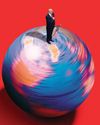
GLOBAL BUSINESS BRACES FOR TRUMP 2.0
AROUND THE WORLD in 2024, voters chose change: in South Africa, France, Britain, and Japan. But nowhere does the anti-incumbent trend matter more than in the United States.